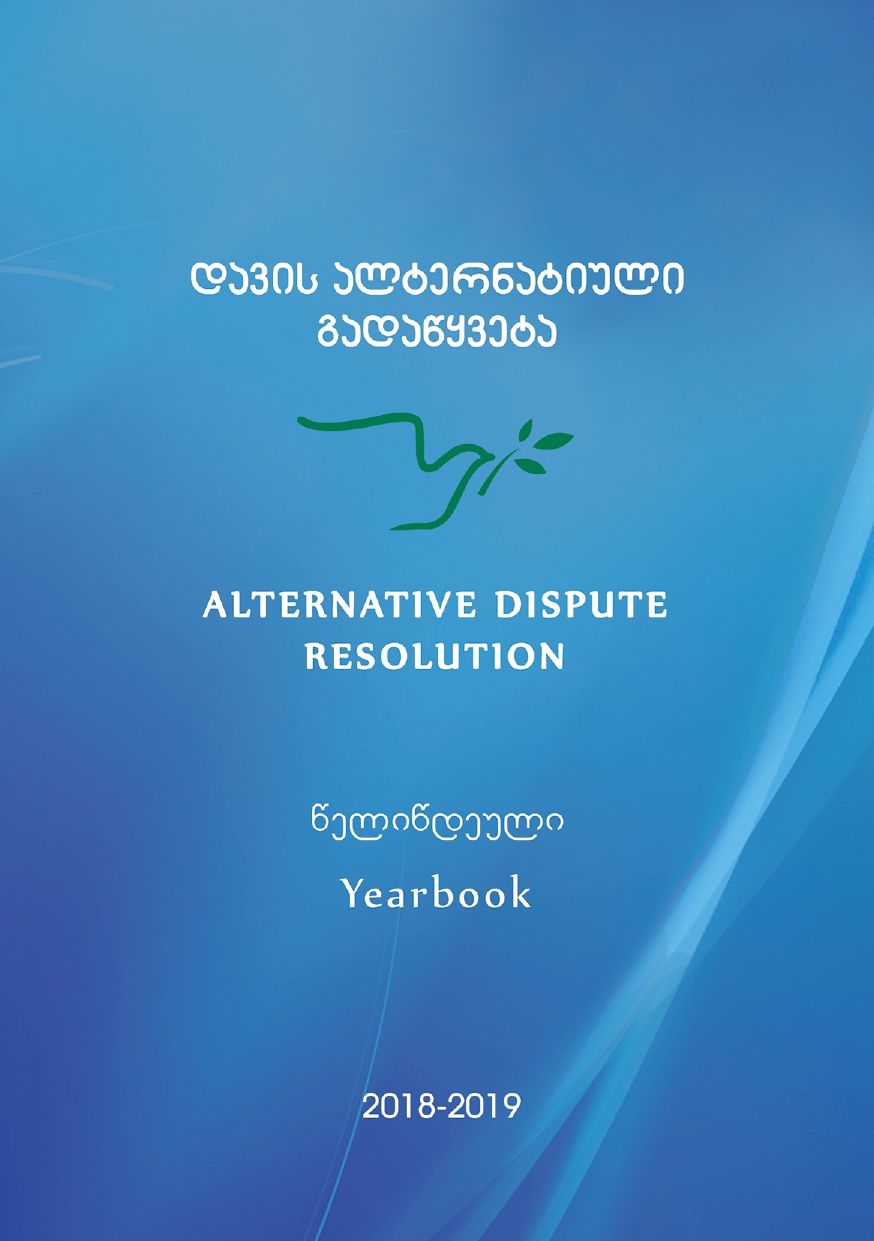Confidentiality Principle in Consideration and Resolution of Collective Labor Dispute through Mediation
Keywords:
collective labor dispute, mediation, confidentiality, code.Abstract
Collective labor disputes have become topical in Georgia since the introduction of amendments to the Labor Code of Georgia, which amendments provided for mandatory mediation for consideration and resolution of collective labor disputes. The paper below demonstrates that labor disputes differ from others by their nature. Respectively one of the core principles of mediation - confidentiality is not fully covered by effective legislation and this legislative gap creates serious problems in practice. The target of the research is finding out the peculiarities of confidentiality principle in the collective labor mediation process by comparative analysis of Georgian and foreign legislations and court decisions, research based recommendations will help to improve the legislation and mediation practice.
References
Law of Georgia on Broadcasting, 23/12/2004.
Organic Law of Georgia - Labor Code, 27/12/2010.
Code of Civil Procedure of Georgia, 14/11/1997.
Iremasivili, K., Challenges for mediators in collective Labor disputes, TSU Alternative Dispute Resolution Centre, University publishing-house, yearbook, 2015, 11 (in Georgian).
Chitashvili N., Specificity of Certain Ethical Obligations of an Attorney-Mediator and Necessity of Regulation , Law Journal N2, University publishing house, 2016 ,41 (in Georgian).
Chitashvili N., Scope of Regulation of Mediation Ethics and the Addresses of Binding by Ethics Standard, Law Journal, 2016 N1, University publishing-house, 2016, 35 (in Georgian).
Tsertsvadze G., Mediation, Meridiani, Tb., 2010, 48, 52-53 (in Georgian).
Tsertsvadze G., (Edit.), Perspectives of Legal Regulation of mediation in Georgia. National Centre for Alternative Dispute Resolution, Tb., 2013, 24-29 (in Georgian).
National Labor Relations Act, 49 stat. 449 (1935), as amended by Pub. L. No. 101, 80th Cong., 1st Sess., 1974, and Pub. L. No 257, 86th Cong., 1st Sess., 1959.
Alfini J., Press B.S., Stulberg B.J., Mediation Theory and Practice, 3rd ed., LexisNexis, 2013, 206, 207, 210.
Cooley W.J., Defining the Ethical Limits of Acceptable Deception in Mediation, Pepperdine Dispute Resolution Law Journal, Vol.4, 2004, 264-265.
Doellgast V., Benassi Ch., Collective Bargaining, London School of Economics and Political Science, Edward Elgar Handbook of Employee Voice, Forthcoming, 2014,
Foley K., Cronin M., Professional Conciliation in Collective Labor Disputes, A Practical Guide, 12.
Kovach K.K., Mediation in a Nutshell, Thomson West, University of Texas, 2003, 173, 175, 176.
Riskins L.L., Westbrook E.J., Guthrie C., Reuben C.R., Robbennolt K.J., Welsh A.N., Dispute Resolution and Lawyers, 4th ed., West Academic Publishing, 2009, 482, 485-486, 493-495.
www.nlrb.gov.
https://www.facebook.com/RealuriSivrtse/videos/1737580433120658/.
https://www.facebook.com/RealuriSivrtse/videos/1737764076435627/.
https://www.facebook.com/Georgianmediatradeunion/videos/907948492648037/.
www.mediate.com/articles/israeIL13.cfm.









